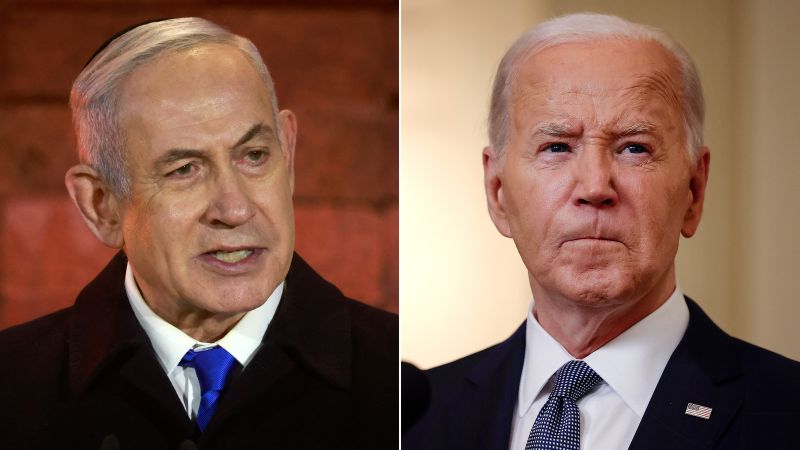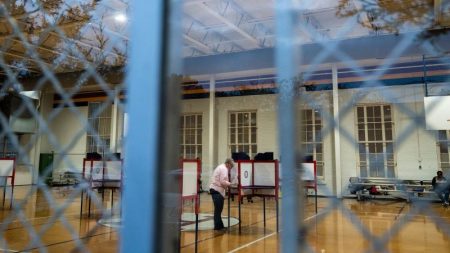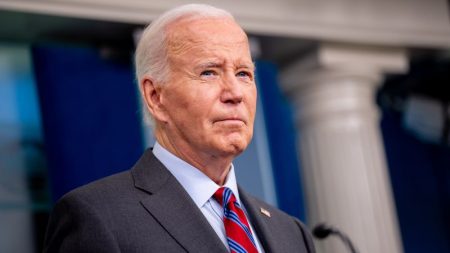President Joe Biden held a “direct,” 30-minute phone call with his Israeli counterpart Benjamin Netanyahu on Wednesday, their first conversation in almost two months and a chance to confer over Israel’s planned response to an Iranian ballistic missile attack.
“They discussed a range of issues,” press secretary Karine Jean-Pierre said after the call ended, characterizing the conversation as an extension of discussions between US and Israeli officials about Israel’s response to the Iranian attack, which Biden has said should be “proportional.”
A White House readout released later Wednesday described Biden condemning “unequivocally” the Iranian missile attack, without expanding any further on the two leaders’ discussion about how Israel would respond.
The leaders also exchanged views on Lebanon, the White House said, with Biden stressing the need for a “diplomatic arrangement” that would allow Israeli and Lebanese citizens displaced by violence along the border to return to their homes.
The phrasing appeared to intentionally stop short of calling for a ceasefire along the border, which the US had recently pressed for only to be rebuffed by Netanyahu.
Instead, Biden “affirmed Israel’s right to protect its citizens from Hezbollah, which has fired thousands of missiles and rockets into Israel over the past year alone, while emphasizing the need to minimize harm to civilians, in particular in the densely populated areas of Beirut.”
And he pushed again for “renewed diplomacy” to unstick stalled talks on securing a ceasefire and hostage deal in Gaza, where he also pressed for restoring humanitarian aid routes.
The leaders, the White House said, agreed “to remain in close contact over the coming days both directly and through their national security teams.”
Vice President Kamala Harris joined the call, which occurred midmorning, from New York on a secure phone line. She declined to elaborate on the conversation in an interview with CNN earlier Wednesday, telling Dana Bash it was classified. Still, she acknowledged the significance of the conversation, the first between Biden and Netanyahu since August 21.
“It was an important call,” she said.
American officials have been hoping to limit Israel’s response to Iran, with the region on a razor’s edge as fears of a wider war grow. The president has said he opposes strikes on Iran’s nuclear facilities and recommended against a strike on Iranian oil reserves.
How much weight Biden’s words will carry is an open question, however, and US officials have grown highly skeptical at Netanyahu’s willingness to listen to Biden’s advice.
Still, Biden was insistent that he speak to Netanyahu ahead of Israel’s next steps, believing it important to convey his views directly.
The long period of silence between the two men was reflective of a relationship that has soured over the past year. Biden has grown frustrated that Netanyahu appears to brush off his advice and recommendations, and to publicly reject his attempts at lowering regional temperatures.
Biden has emerged from previous phone calls deeply angered by his interactions, including using curse words to describe his Israeli counterpart, according to accounts published this week by Washington journalist Bob Woodward.
The White House, which has declined to comment on those reports, has insisted the two men maintain a functional relationship.
“The President and the Prime Minister have known each other for decades, and their conversations, their relationship, have always been honest and direct, and this 30 minute conversation that they had today was also direct and very productive,” Jean-Pierre said.
Read the full article here















